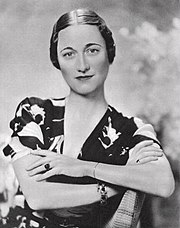Design
Design
Personality
Chart Properties
Your Cross represents the specific theme of your life. This cross embodies your unique potential & the lessons you're here to learn, providing a roadmap to fulfilling your life purpose.
We use the UTC birth time and date to do the calculations required to generate your Human Design chart.
Buy Tokens
Pay as you use, no expiry and no subscription required.Prompt Ideas
Get inspired with some epic prompt ideas.Jacques Presser's Biography
Dutch historian, writer and poet.
Presser was born at the Waterloopplein 17, in the pre-war Jewish quarter of Amsterdam, in a family of rather poor secular Jews. His father Gerrit Presser (12 July 1874 11 AM Amsterdam – 4 August 1936, Amstelveen?), was a diamond cutter. In 1903 he emigrated to Antwerp for economics reasons (unemployment). In 1907, they returned to Amsterdam. The Pressers were secular Jews, who hoped that the International socialisms
He attended the University of Amsterdam after finishing a commercial vocational college and having worked in an office for two years. At the University he studied history, art history, and Dutch. He graduated cum laude in 1926 on the origins of the Treatise of the Three Impostors. Then he taught history at the newly founded Vossius Gymnasium (1926) in Amsterdam, where many prominent Dutch persons became his student. He married an ex student of him: Debora Suzanna Appel (1 December 1913, Amsterdam – 26 March 1943, Sobibor) on 30 July 1936 in Amsterdam. They had no children.
In 1930, he came into contact with the historian Jan Romein who helped him to get a job as an instructor at the Instituut voor Historische Leergangen, which launched his academic career. Both Presser and Romein were interested in socio-cultural history. But what or who determines culture? The term Ego-Dokument was first coined by Presser in 1958. Jan Romein was was one of the instigators of publishing the most famous Ego document of Dutch WW2 history, the now iconic Diary of Anne Frank.
Presser was affected by the then rising anti-Semitism in Nazi Germany and critically wrote about it. When Germany invaded the Netherlands on 10 May 1940, he was shocked. After the Dutch surrender (14 May), he and his wife Deborah Appel seriously attempted suicide by cutting their wrists. They failed and were brought to hospital. Because of the Nazi anti-Jewish policies, he lost his job at the secular Vossius Gymnasium; but he managed to find work as a teacher at the Jewish Lyceum. But on February 22, 1941, the Germans started there fist raids on Jewish persons at the Waterloopplein of Amsterdam.
In early 1943, his wife Deborah Appel was arrested and deported to the Sobibor extermination camp, where she was gassed. The loss of his first wife marked Presser for life. Yet he managed to escape from the Nazis by going into hiding in several places, including in a small town named Lunteren. Lunteren lies south-west of the geographical centre of the Netherlands and was chosen by the the National Socialist Movement in the Netherlands (“NSB”) leader Mussert to hold his annual Hagespraken (propagandistic open-air meetings) between 1936 and 1940. Nobody would expect hiding Jew here.
After the war’s end, Presser got back his teaching job at the Vossius Gymnasium, and he was also a lecturer in political history, didactics, and the methodology of history at the Faculty of Arts of the University of Amsterdam.
In 1947, partly at his instigation, the politico-social faculty of law was established at the University of Amsterdam (UVA) , and he began to teach there. From 1948, he was also professor at the Faculty of Arts. His Marxist political leanings prevented him from receiving full promotions at the University until 1952. Over the years, he spoke out on political controversies, such as the Dutch ‘Politionele acties’ against Indonesian decolonisation, and the activities of U.S. Senator Joseph McCarthy against suspected Communists. He also contributed to the communist daily paper De Waarheid during the first post war years. Later he published in other leftist magazines, such as Vrij Nederland and De Groene Amsterdammer.
January 22, 1954, Presser married Bertha (Bep) Hartog (31 December 1903, Amsterdam – 8 November 1976), the widow of Jan Jacobus Johannes Bijlsma (1891- 2 November 1943, Amsterdam). They had no children,
February 1956 he finished his short novel De nacht der Girondijnen (1957). End march 1957, 150,000 pieces were spread as Boekenweekgeschenk, the yearly free book given by booksellers to their customers in Dutch week of the book.
In 1959, he succeeded Jan Romein in his Dutch history chair at the Faculty of Arts at the University of Amsterdam. In 1966 he became member of the Royal Netherlands Academy of Arts and Sciences.Presser retired from his job on 31 May 1969. He died suddenly on 30 April 1970 after surgery. The writer and film maker Philo Bregstein (1 June 1932, Amsterdam) had planned to interview him on Dutch television the next week in remembrance of May 1940. That same year Presser was remembered on Dutch television in the VARA documentary “Dingen die niet voorbijgaan”. The title is a variation on the famous psychological novel of Louis Couperus, “Van oude menschen, de dingen, die voorbij gaan….”(Old people and the things that pass.) Under the name “The past that lives” the Documentary won prizes.
Link to Wikipedia
Your Cross represents the specific theme of your life. This cross embodies your unique potential & the lessons you're here to learn, providing a roadmap to fulfilling your life purpose.
We use the UTC birth time and date to do the calculations required to generate your Human Design chart.





